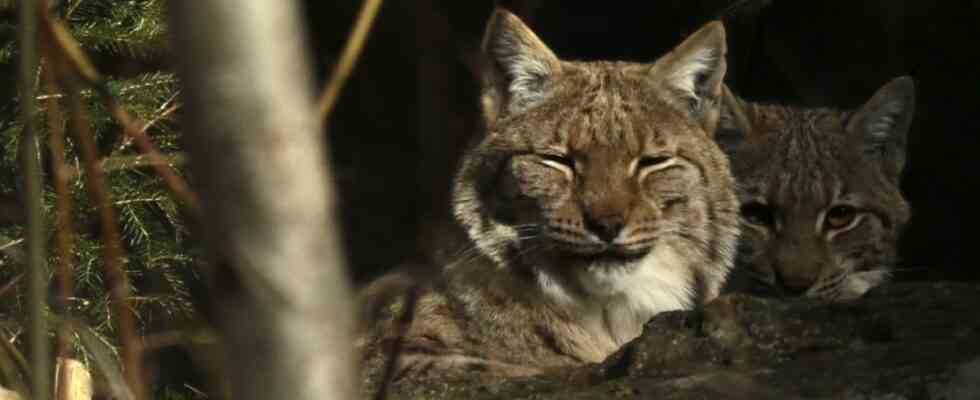The carcass of the young lynx, which a forest owner found a year and a quarter ago near Bischofsmais in the Bavarian Forest, was a horrific sight. The predator was severely emaciated and had a serious injury to its left front paw. Lynx are strictly protected and may not be hunted. Anyone who still pursues a lynx commits a criminal offence. Because of the wound on the front paw, it was suspected that the lynx had been poached. The carcass was therefore examined in detail on behalf of the State Criminal Police Office.
The result: a shot was fired at the lynx, the projectile hit her on the front paw. The injury was so severe that the big cat could no longer hunt. She starved miserably. The case is one of a whole series of lynx poachings in the border region between Bavaria and the Czech Republic in recent years. There were always indications of possible perpetrators. But in the end not a single case was solved.
With a new project, the environmental organization WWF and the association “Luchs Bayern” want to at least curb the illegal killing of lynxes in the Bavarian Forest and in the bordering Bohemian Forest. It’s called “Tatort Lynx”. Illegal killings of lynx are still on such a scale that the cats of prey are no longer spreading in the Free State, the Czech Republic and Upper Austria. Rather, the existence of the small population is endangered, although young lynx are born every year. Conservationists assume that only around a hundred lynxes have recently roamed the forests in Bavaria, including 26 young animals.
Abyssal prey envy is the reason for lynx killings
Experts are convinced that the reason why poachers keep chasing after the big cats with poison, traps and firearms is abysmal prey envy: lynxes mainly hunt and eat deer. Therefore, the poachers do not want to tolerate them in the forests. Studies have shown that up to 25 percent of lynx in Bavaria are poached. According to the WWF and “Luchs Bayern”, in 2018 and 2019 alone, 13 adult lynxes that were loyal to their territory disappeared without a trace in the Bavarian-Bohemian region, and two more were demonstrably killed there. “But the lynx that have disappeared are also very likely to have fallen victim to poaching,” says WWF official Moritz Klose.
The project is primarily aimed at rangers, local authorities, prosecutors and judges. After all, they are the ones who are important when it comes to securing traces and evidence during poaching, but also when prosecuting criminals. Central aspects are which tracks have to be secured at the site where a killed lynx was found and which further analyzes are necessary. The “Tatort-Luchs-Team” wants to present a manual with best-practice examples, forensics and criminal prosecution should always be carried out according to the same high standards. “All available forensic techniques should be exhausted,” says Sybille Wölfl, chairwoman of “Luchs Bayern”. “We need the involvement of competent wildlife forensic scientists. They can provide important information as to where and how to investigate further.”
WWF and “Luchs Bayern” have great expertise both in matters of lynx and poaching. The WWF through its commitment to all kinds of endangered animals and protected areas worldwide, but also to the lynx in other federal states. “Luchs Bayern” through the local activities of its chairman Wölfl for the big cats. The biologist Wölfl is one of the outstanding lynx experts in the German-speaking world. For many years she has been committed to helping the big cats re-establish themselves in the Bavarian Forest. Because of her determination, Wölfl is repeatedly attacked. The Czech environmental organization Hnutí Duha and the University of Bremen are also involved in the project. The latter primarily contributes their legal expertise.

